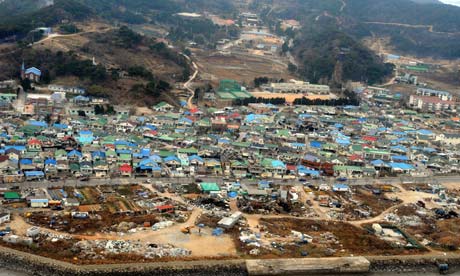Alain Le Roy said the UN was facing more hostility in Ivory Coast
UN peacekeepers in Ivory Coast are sending a request to the Security Council for 1,000 to 2,000 more troops amid the continuing political crisis.
UN peacekeeping chief in Ivory Coast Alain Le Roy said he hoped the troops would be available in a few weeks.
UN peacekeepers have been protecting a hotel in Abidjan that is sheltering Alassane Ouattara, the man recognised internationally as the new president.
Incumbent President Laurent Gbagbo has refused to cede power.
Mr Le Roy said the request for more troops would be made in the next few days.
He said they were needed because of the current force's additional duty of protecting the hotel.
Mr Le Roy also said the UN was facing more hostility because of what he called false reports on the Gbagbo-controlled media.
An estimated 10,000 UN troops are already in the country.
'No civil war'A blockade remains around the hotel despite African mediators reporting on Tuesday that Mr Gbagbo had agreed to lift it.
On Wednesday his spokesman, Foreign Minister Alcide Djedje, said the blockade could only end if former rebels protecting Mr Ouattara left the building.
He said Mr Gbagbo had only agreed to study the conditions for lifting the blockade.
Mr Djedje said: "The Ivorian army feels it cannot tolerate that 300 heavily armed soldiers from the former rebellion should be in the hotel. That is a threat including for President Gbagbo whose residence is five minutes away by boat.
"If the [New Forces] soldiers go, the blockade will be lifted."
The north of the country is controlled by the New Forces, the former rebel movement that supports Mr Ouattara.
The 28 November election was intended to reunify the country - the world's leading cocoa producer - which has been divided since the 2002 conflict.
Alcide Djedje said rebel soldiers must leave the hotel in Abidjan for the blockade to end
Reporters reached Mr Ouattara's hotel on Wednesday and he told them Mr Gbagbo had never been sincere in his offers.
"He has never been up to his commitments, he wants to gain time in order to bring in arms, ammunitions and mercenaries, because he wants to continue to stay in office but this will not work."
But Mr Ouattara insisted this did not mean there would be a civil war.
"No, it will not end in a war because clearly Ecowas will make the decisions quickly to remove him."
The West African regional body Ecowas has threatened to force Mr Gbagbo out, but is trying mediation efforts first.
Mr Ouattara said: "I want this to be clear: removing one person does not mean civil war."
He added: "My government and myself will stay here until he leaves the presidential offices, so we can go and work fully - as the Ivorian people have decided to put us in office."
Both men have been sworn in as president.
On Monday, Ecowas sent the presidents of Benin, Cape Verde and Sierra Leone to negotiate Mr Gbagbo's departure - their second attempt to do so in a week.
Kenyan Prime Minister Raila Odinga, representing the African Union (AU), also attended.
The leaders told Mr Gbagbo to recognise Mr Ouattara as the elected leader of the country.
Mr Ouattara was initially proclaimed the winner by the country's election commission - a verdict backed by the UN, which helped organise the poll.
But the country's Constitutional Council, headed by an ally of Mr Gbagbo, later ruled that he had won, citing voting irregularities in the north.
Questions
- Why do you think corruption is rife in the Ivory Coast?
- How has Singapore prevented political problems such as these?
- If a new prime minister is elected in Singapore, would the incumbent refuse to cede power or would he cooperate? Why?
- What is the role of the UN in the crisis?
- How will the UN assist to end the crisis?
- Using relevant information and knowledge, how much longer do you think the blockade will last? Why?
- Do you think the internationally recognised President Alassane Ouattara will ever gain control of the country? Why?


